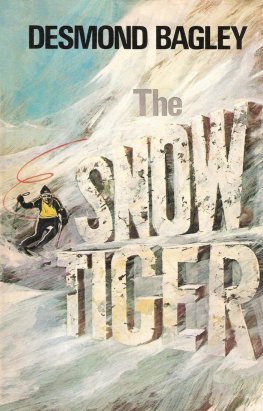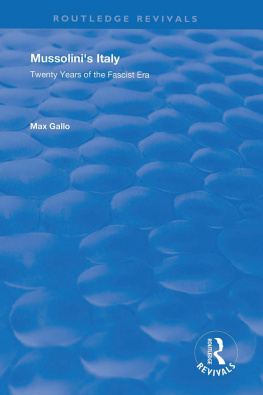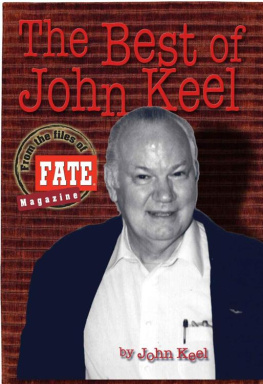Desmond Bagley - Golden Keel
Here you can read online Desmond Bagley - Golden Keel full text of the book (entire story) in english for free. Download pdf and epub, get meaning, cover and reviews about this ebook. year: 2008, publisher: House of Stratus, genre: Adventure. Description of the work, (preface) as well as reviews are available. Best literature library LitArk.com created for fans of good reading and offers a wide selection of genres:
Romance novel
Science fiction
Adventure
Detective
Science
History
Home and family
Prose
Art
Politics
Computer
Non-fiction
Religion
Business
Children
Humor
Choose a favorite category and find really read worthwhile books. Enjoy immersion in the world of imagination, feel the emotions of the characters or learn something new for yourself, make an fascinating discovery.

- Book:Golden Keel
- Author:
- Publisher:House of Stratus
- Genre:
- Year:2008
- Rating:3 / 5
- Favourites:Add to favourites
- Your mark:
- 60
- 1
- 2
- 3
- 4
- 5
Golden Keel: summary, description and annotation
We offer to read an annotation, description, summary or preface (depends on what the author of the book "Golden Keel" wrote himself). If you haven't found the necessary information about the book — write in the comments, we will try to find it.
Golden Keel — read online for free the complete book (whole text) full work
Below is the text of the book, divided by pages. System saving the place of the last page read, allows you to conveniently read the book "Golden Keel" online for free, without having to search again every time where you left off. Put a bookmark, and you can go to the page where you finished reading at any time.
Font size:
Interval:
Bookmark:
During my first week in Cape Town I answered several of the Sit. Vac. advertisements which appeared in the Cape Times and while waiting for answers I explored my environment. On this particular morning I had visited the docks and finally found myself near the yacht basin.
I was leaning over the rail looking at the boats when a voice behind me said, "If you had your choice, which would it be?"
I turned and encountered the twinkling eyes of an elderly man, tall, with stooped shoulders and grey hair. He had a brown, weather-beaten face and gnarled hands, and I estimated his age at about sixty.
I pointed to one of the boats. "I think I'd pick that one," I said. "She's big enough to be of use, but not too big for single-handed sailing."
He seemed pleased. "That's Graeia," he said. "I built her."
" She looks a good boat," I said. "She's got nice lines."
We talked for a while about boats. He said that he had a boatyard a little way outside Cape Town towards Milnerton, and that he specialised in building the fishing boats used by the Malay fishermen. I'd noticed these already; sturdy unlovely craft with high bows and a wheelhouse stuck on top like a chicken-coop, but they looked very seaworthy. Gracia was only the second yacht he had built.
"There'll be a boom now the war's over," he predicted. "People will have money in their pockets, and they'll go in for yachting. I'd like to expand my activities in that direction."
Presently he looked at his watch and nodded towards the yacht club. "Let's go in and have a coffee," he suggested.
I hesitated. "I'm not a member,"
"I am," he said. "Be my guest."
So we went into the club house and sat in the lounge overlooking the yacht basin and he ordered coffee. By the way, my name's Tom Sanford."
"I'm Peter Halloran."
"You're English," he said. "Been out here long?"
I smiled. "Three days."
"I've been out just a bit longer--since 1910." He sipped his coffee and regarded me thoughtfully. "You seem to know a bit about boats."
"I've been around them all my life," I said. "My father had a boatyard on the east coast, quite close to Hull. We built fishing boats, too, until the war."
"And then?"
"Then the yard went on to contract work for the Admiralty," I said. "We built harbour defence launches and things like that--we weren't geared to handle anything bigger." I shrugged. "Then there was an air-raid."
"That's bad," said Tom. "Was everything destroyed?"
"Everything," I said flatly. "My people had a house next to the yard--that went, too. My parents and my elder brother were killed."
"Christ!" said Tom gently. "That's very bad. How old were you?"
"Seventeen," I said. "I went to live with an aunt in Hatfield; that's when I started to work for de Havilland-- building Mosquitos. It's a wooden aeroplane and they wanted people who could work in wood. All I was doing, as far as I was concerned, was filling in time until I could join the Army."
His interest sharpened. "You know, that's the coming thing--the new methods developed by de Havilland. That hot-moulding process of theirs--d'you think it could be used in boat-building?"
I thought about it. "I don't see why not--it's very strong. We did repair work at Hatfield, as well as new construction, and I saw what happens to that type of fabric when it's been hit very hard. It would be more expensive than the traditional methods, though, unless you were mass-producing."
"I was thinking about yachts," said Tom slowly. "You must tell me more about it sometime." He smiled. "What else do you know about boats?"
I grinned. "I once thought I'd like to be a designer," I said.
"When I was a kid--about fifteen--I designed and built cay own racing dinghy."
"Win any races?"
"My brother and I had 'em all licked," I said. "She was a fast boat. After the war, when I was cooling my heels waiting for my discharge, I had another go at it--designing, I mean. I designed half a dozen boats--it helped to pass the time."
"Got the drawings with you?"
"They're somewhere at the bottom of my trunk," I said. "I haven't looked at them for a long time."
"I'd like to see them," said Tom. "Look, laddie; how would you like to work for me? I told you I'm thinking of expanding into the yacht business, and I could use a smart young fellow."
And that's how I started working for Tom Sanford. The following day I went to the boatyard with my drawings and showed them to Tom. On the whole he liked them, but pointed out several ways in which economies could be made in the building. "You're a fair designer," he said. "But you've a lot to learn about the practical side. Never mind, we'll see about that. When can you start?"
Going to work for old Tom was one of the best things I ever did in my life.
"You've got a good eye for line," he said. "Your boats would be sweet sailers, but they'd be damned expensive. You've got to spend more time on detail; you must cut down costs to make an economical boat."
Four years after I joined the firm Tom made me yard foreman, and just after that, I had my first bit of luck in designing. I submitted a design to a local yachting magazine, winning second prize and fifty pounds. But better still, a local yachtsman liked the design and wanted a boat built. So Tom built it for him and I got the designers' fee which went to swell my growing bank balance.
Tom was pleased about that and asked if I could design a class boat as a standard line for the yard, so I designed a six-tonner which turned out very well We called it the Penguin Class and Tom built and sold a dozen in the first year at 2000 each. I liked the boat so much that I asked Tom if he would build one for me, which he did, charging a rock-bottom price and letting me pay it off over a couple of years.
Having a design office gave the business a fillip. The news got around and people started to come to me instead of using British and American designs. That way they could argue with their designer. Tom was pleased because most of the boats to my design were built in the yard.
Font size:
Interval:
Bookmark:
Similar books «Golden Keel»
Look at similar books to Golden Keel. We have selected literature similar in name and meaning in the hope of providing readers with more options to find new, interesting, not yet read works.
Discussion, reviews of the book Golden Keel and just readers' own opinions. Leave your comments, write what you think about the work, its meaning or the main characters. Specify what exactly you liked and what you didn't like, and why you think so.





